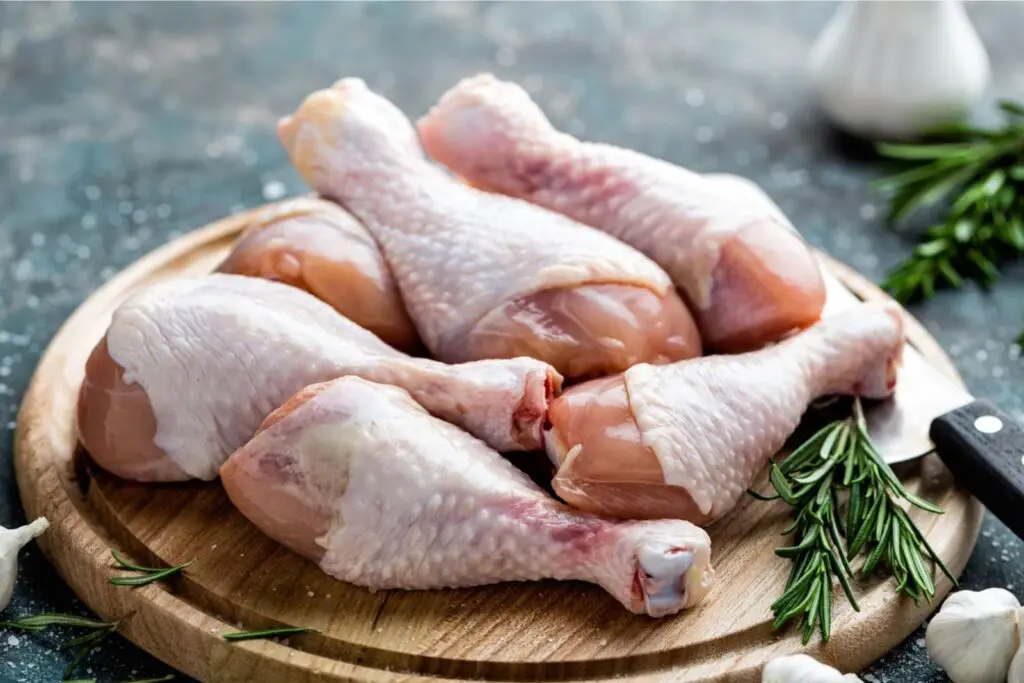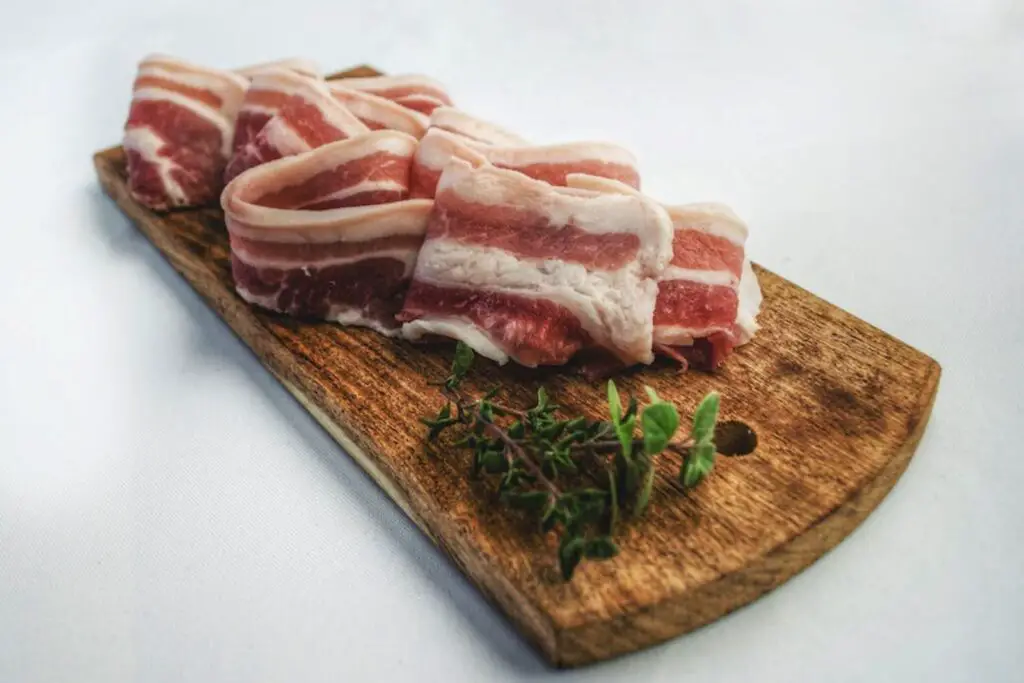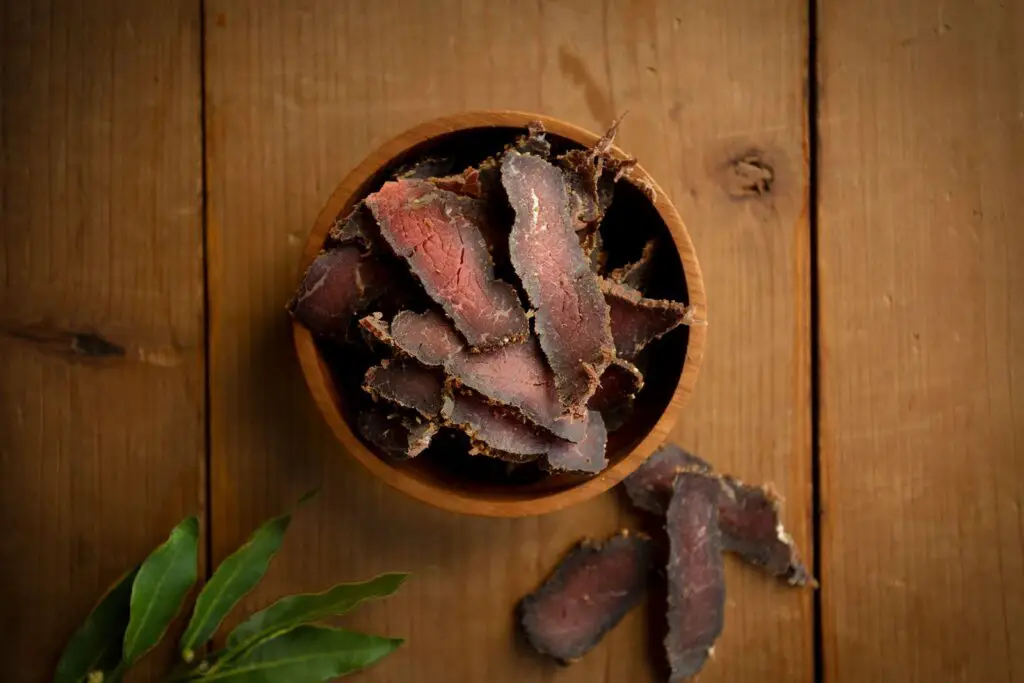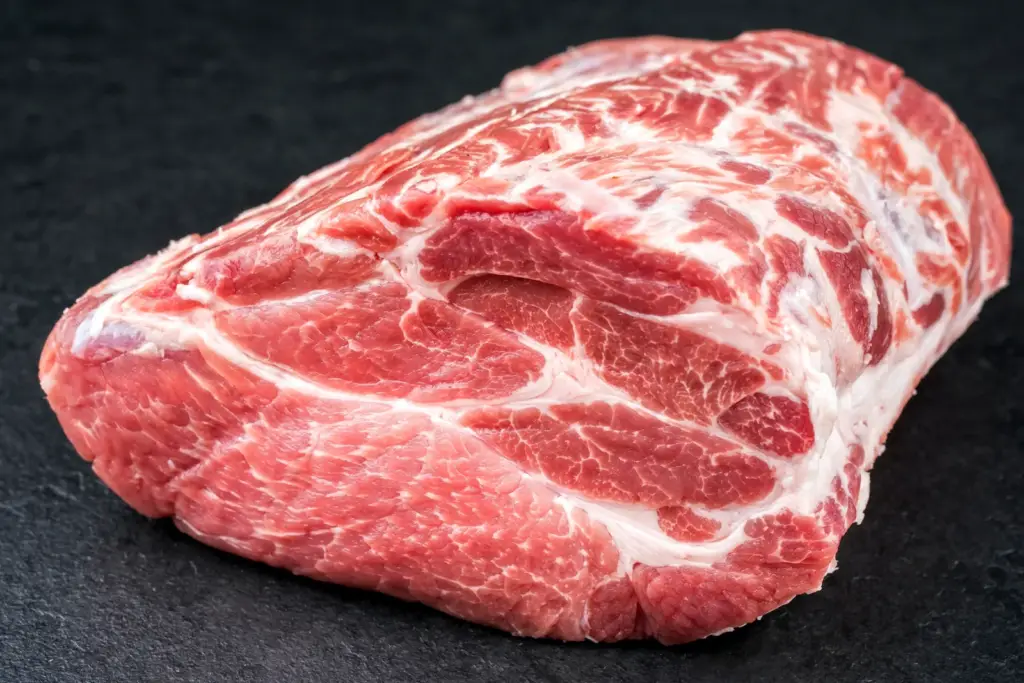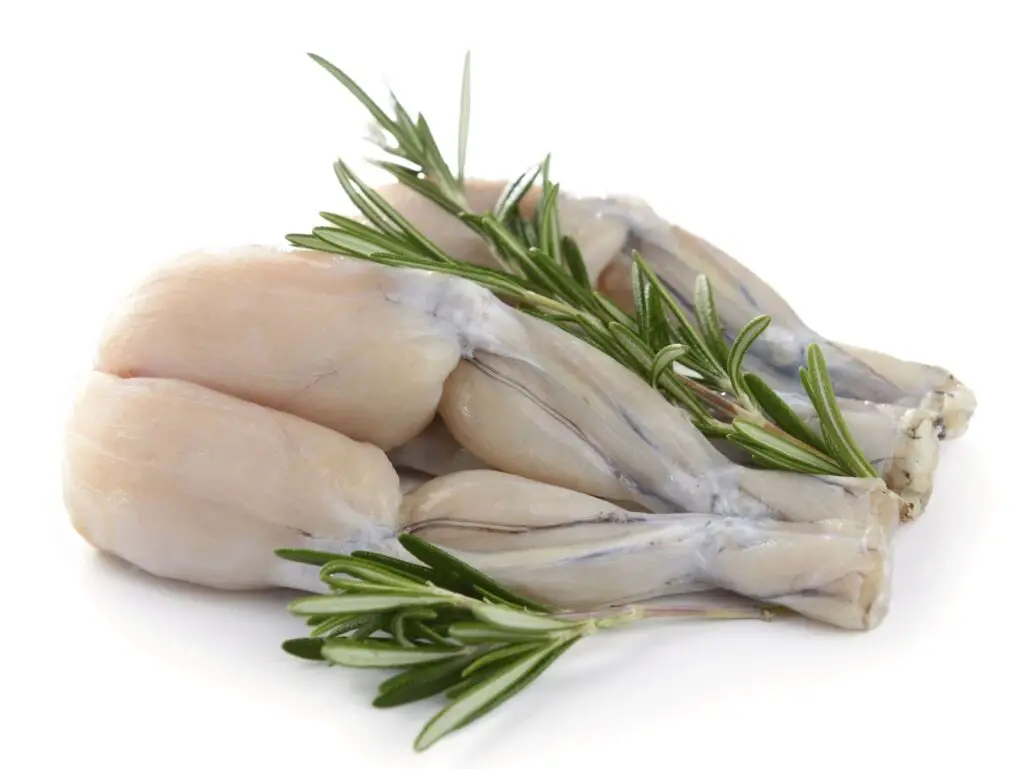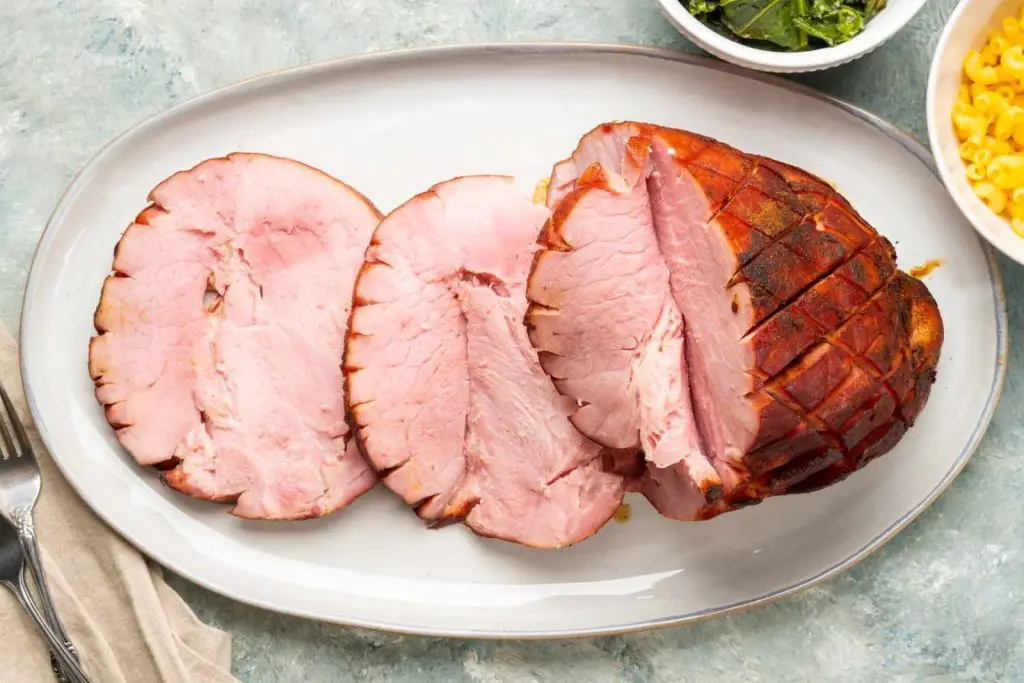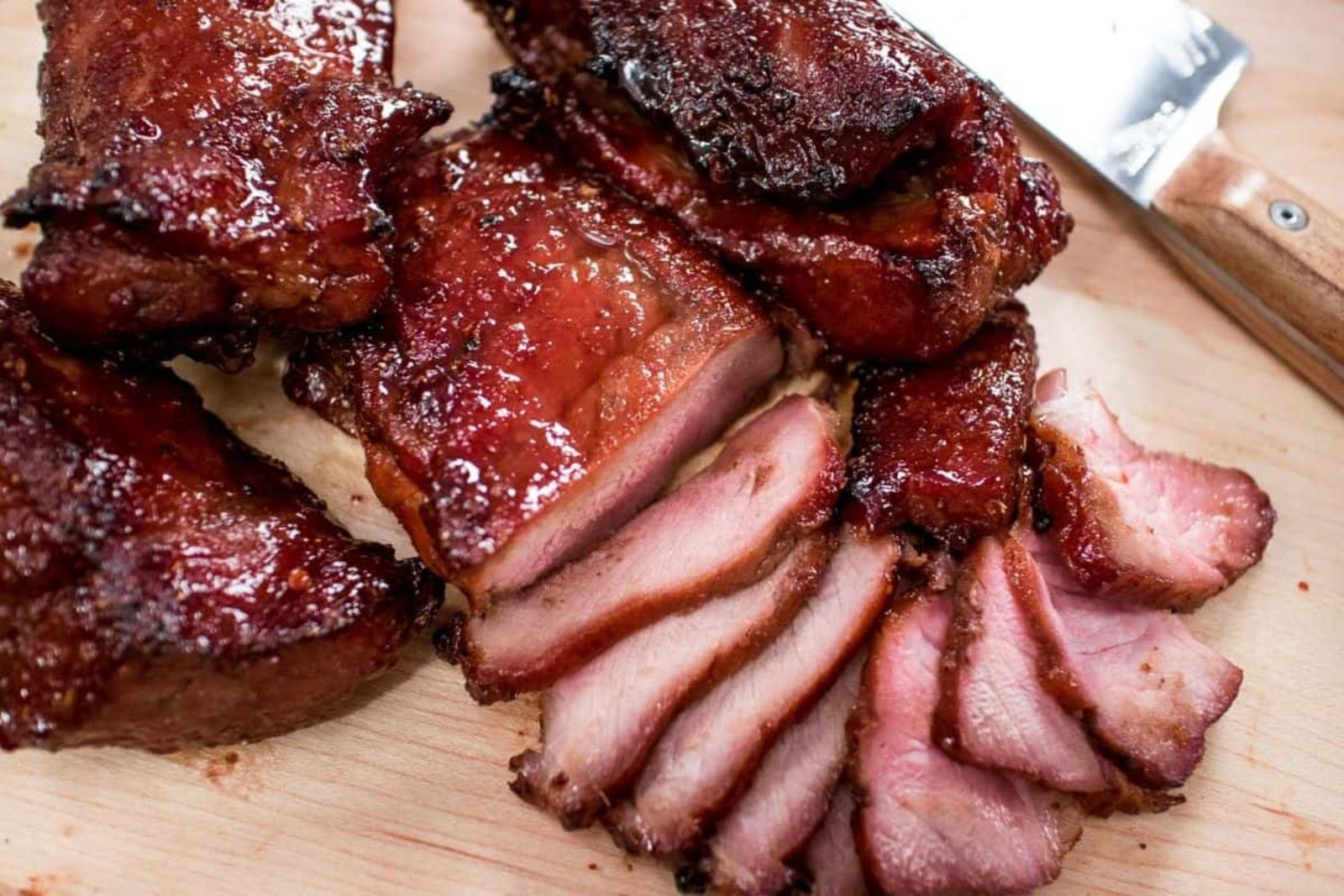
BBQ pork, also known as barbecue pork, refers to a dish made from pork that has been cooked using various barbecue techniques. It involves slow-cooking the pork over low, indirect heat, often accompanied by the use of marinades, rubs, or sauces to enhance the flavor. The result is tender, juicy pork with a smoky and caramelized exterior. Freezing BBQ pork is an excellent way to preserve its delicious flavor and ensure you can enjoy it at a later time. Whether you have cooked a large batch of BBQ pork or have some leftovers that you don’t want to go to waste, proper freezing techniques will help maintain its taste and texture.
Here’s how you can freeze BBQ pork:
Step 1: Allow the BBQ pork to cool down
Before freezing BBQ pork, it’s important to let it cool down completely. When cooked meat is hot, there is residual moisture present within it. If you immediately wrap and freeze the hot BBQ pork, the moisture will condense and form ice crystals inside the packaging as it cools down in the freezer. This can lead to freezer burn, which is the dehydration and oxidation of the meat due to exposure to air.
Allowing the BBQ pork to cool down to room temperature before freezing helps to prevent this condensation. By allowing the meat to cool naturally, excess moisture can evaporate, minimizing the formation of ice crystals during freezing. This step is crucial because freezer burn can negatively impact the taste, texture, and overall quality of the pork. It can result in dry, tough, and bland meat, affecting your enjoyment when you eventually thaw and cook it.
By ensuring the BBQ pork is cooled down properly, you can maintain its optimal flavor and texture throughout the freezing and thawing process. So, exercise patience and give the meat enough time to cool down before proceeding to the next steps of the freezing process.
What are the best cuts of pork for BBQ that can be frozen?
The best cuts of pork for BBQ that can be frozen include shoulder (also known as pork butt), ribs (such as baby back ribs or spare ribs), and pork loin. These cuts are popular for their tenderness and ability to develop rich flavors when cooked low and slow. Properly wrapped and stored, these cuts can be frozen to extend their shelf life without significantly compromising their taste and texture.
Step 2: Portion the BBQ pork
When freezing BBQ pork, it’s important to decide whether you want to freeze the entire batch or portion it into smaller servings. By dividing the pork into individual portions, you provide more flexibility when it comes to thawing and using the meat later on.
Cutting the BBQ pork into smaller servings allows you to thaw and use only the amount you need, while keeping the remaining portions safely stored in the freezer. This helps to minimize waste, as you won’t have to thaw and refreeze the entire batch every time you want to use it. It also allows for easier meal planning, as you can take out just the required portions without thawing more meat than necessary.
On the other hand, if you prefer to freeze the whole piece of BBQ pork, make sure it’s a manageable size for your future needs. Consider the number of servings you typically require and ensure that the size of the pork won’t be excessive for your intended use. This ensures convenience when it’s time to thaw and cook the entire piece, whether you plan to use it for a larger gathering or for multiple meals over time.
Should I remove the bones from the BBQ pork before freezing?
Whether or not to remove the bones from BBQ pork before freezing is a matter of personal preference. While bones can add flavor during the cooking process, removing them can make the storage and thawing process more convenient. It is recommended to wrap the pork tightly to prevent freezer burn and maintain its quality, regardless of whether the bones are intact or removed.
Step 3: Wrap the BBQ pork tightly
To ensure the BBQ pork remains in optimal condition during freezing, it’s crucial to wrap it tightly. By tightly wrapping each portion or the whole piece, you create a protective barrier that helps to prevent freezer burn and maintain the flavor and texture of the meat.
First, use plastic wrap to tightly encase the BBQ pork. The plastic wrap acts as the primary layer of protection against air and moisture. It helps to seal in the natural juices of the pork, preventing them from evaporating and resulting in dry meat. Additionally, the plastic wrap creates a barrier that reduces the chances of the pork coming into contact with the cold air in the freezer, which can lead to freezer burn.
When wrapping, ensure there are no gaps or exposed areas where air can enter or moisture can escape. The tighter the wrap, the better the protection. Pay special attention to the edges and ends of the pork to ensure they are securely sealed. Wrapping each portion individually is particularly important if you’ve chosen to portion the BBQ pork, as it allows for easier handling and prevents freezer burn on exposed surfaces.
Step 4: Double-wrap with aluminum foil
Once you have tightly wrapped the BBQ pork in plastic wrap, the next step is to double-wrap it with aluminum foil. This additional layer of protection serves multiple purposes in maintaining the quality of the meat during freezing.
Aluminum foil acts as a barrier against air and moisture, adding an extra level of insulation to the BBQ pork. It helps to shield the meat from the cold air circulating in the freezer, reducing the risk of freezer burn. Freezer burn occurs when moisture in the meat evaporates and forms ice crystals on its surface, leading to dry and discolored patches.
By double-wrapping with aluminum foil, you create a more effective barrier that helps maintain a consistent temperature around the pork. This insulation minimizes temperature fluctuations, preventing the formation of ice crystals and the subsequent deterioration of the meat’s texture and taste.
Additionally, the foil provides an extra layer of protection against potential odors and flavors from other foods in the freezer. It helps to keep the BBQ pork isolated, preserving its original taste and preventing any cross-contamination.
Can I freeze BBQ pork in vacuum-sealed bags or airtight containers instead of using plastic wrap and aluminum foil?
Yes, you can freeze BBQ pork in vacuum-sealed bags or airtight containers as alternatives to using plastic wrap and aluminum foil. Vacuum-sealed bags remove air, preventing freezer burn and preserving the pork’s quality. Airtight containers provide a reliable seal, minimizing air exposure and maintaining flavor. Choose the method that suits your preference and ensures proper packaging to protect the BBQ pork during freezing.
Step 5: Label and date the package
Before you store the wrapped BBQ pork in the freezer, it’s essential to label the package with the contents and date. This simple step may seem minor, but it plays a crucial role in maintaining organization and easy identification of the meat later on.
By labeling the package, you ensure that you can quickly identify the BBQ pork among other frozen items in your freezer. This is especially important if you have multiple packages or various types of meat stored. Without proper labeling, it can become challenging to distinguish one package from another, leading to confusion and potential waste.
Include clear and specific information on the label, such as “BBQ Pork” or any other description that helps you easily recognize the contents. Additionally, write down the date of freezing, as this will give you a reference point for how long the pork has been in the freezer. It’s recommended to use a permanent marker or adhesive labels to ensure the information remains visible and doesn’t smudge or fade over time.
Labeling and dating the package also serve as a reminder of the storage duration. While frozen BBQ pork can typically be stored for up to three months without significant quality loss, having a clear date allows you to monitor its freshness and prioritize its use accordingly. This way, you can ensure you consume the meat before it becomes less desirable in taste or texture.
Step 6: Store in the freezer
After properly wrapping and labeling the BBQ pork, it’s time to store it in the freezer. This final step ensures that the meat remains frozen and maintains its quality for an extended period of time.
When selecting a spot in the freezer, it’s crucial to choose an area where the temperature remains constant. The ideal temperature for freezing meat is 0°F (-18°C) or below. This low temperature helps to inhibit bacterial growth and maintain the pork’s freshness. Freezing at a consistent temperature ensures that the meat stays safe to consume and preserves its flavor and texture.
Place the wrapped BBQ pork in the freezer, taking care not to stack other items on top of it. Stacking heavy items on the pork can squish or damage the package, potentially affecting the meat’s quality. It’s advisable to place the pork in a location where it won’t be disturbed or jostled frequently, as this can also compromise the packaging integrity and lead to freezer burn.
Maintaining proper storage conditions in the freezer is crucial for preserving the BBQ pork’s quality. It’s important to avoid fluctuations in temperature, as these can contribute to the formation of ice crystals and potentially affect the taste and texture of the meat. Additionally, storing the pork away from strong-smelling foods can help prevent any unwanted flavors from transferring to the meat.
How long can BBQ pork last in the freezer?
BBQ pork can last in the freezer for up to three months without significant quality loss. When properly stored in airtight packaging and at a consistent temperature of 0°F (-18°C) or below, the frozen BBQ pork can maintain its flavor, texture, and overall quality. It’s recommended to label and date the package to keep track of the storage duration.
Other related questions
How do I defrost BBQ pork?
To defrost BBQ pork, there are a few safe methods to choose from. The recommended methods include thawing in the refrigerator, using the cold water method, or using the microwave.
- To thaw in the refrigerator, place the wrapped BBQ pork on a plate or tray and allow it to defrost slowly in the refrigerator over several hours or overnight.
- For the cold water method, ensure the BBQ pork is securely wrapped in a leak-proof bag and submerge it in cold water, changing the water every 30 minutes until thawed.
- If using the microwave, follow the appliance’s instructions for defrosting meat, using the appropriate settings and power levels. Be cautious to avoid partially cooking the meat during the defrosting process.
How should I reheat frozen BBQ pork?
To reheat frozen BBQ pork, it is recommended to thaw it in the refrigerator first. Once thawed, you can reheat it using various methods such as grilling, baking, or pan-frying. Ensure the pork reaches an internal temperature of 165°F (74°C) to ensure it is safe to eat. Brushing with additional sauce while reheating can help restore moisture and flavor.
Can I refreeze BBQ pork?
Refreezing BBQ pork is generally not recommended as it can affect the quality and safety of the meat. When frozen meat is thawed, bacteria can multiply, and refreezing can further promote bacterial growth, leading to potential foodborne illnesses. It is best to thaw only the amount of BBQ pork needed and consume it within a safe time frame to ensure optimal taste and safety.
How do I know if the BBQ pork has gone bad after being frozen?
To determine if BBQ pork has gone bad after being frozen, several signs can indicate spoilage. Look for any unusual or off-putting odors emanating from the meat, as a foul or rancid smell could indicate bacterial growth. Additionally, check for any significant changes in color, texture, or appearance, such as discoloration, excessive freezer burn, or slimy or mushy texture. If you notice any of these signs, it is best to discard the BBQ pork to avoid potential foodborne illnesses.
Can I freeze BBQ pork with sauce or marinade?
Yes, you can freeze BBQ pork with sauce or marinade. However, it’s important to note that sauces and marinades may change in texture or consistency after freezing and thawing. If you prefer to freeze BBQ pork with sauce or marinade, ensure the meat is well coated and sealed in airtight packaging to prevent freezer burn and maintain its flavor as much as possible.
Can I freeze BBQ pork that has been seasoned with dry rub or spices?
Yes, you can freeze BBQ pork that has been seasoned with dry rub or spices. The seasonings will enhance the flavor of the meat even after freezing. Ensure that the BBQ pork is tightly wrapped in plastic wrap and aluminum foil to prevent moisture loss and maintain the integrity of the seasonings during freezing.
Are there any special considerations for freezing BBQ pork if it has BBQ sauce already applied?
When freezing BBQ pork that already has BBQ sauce applied, there are a few special considerations to keep in mind. Firstly, ensure the BBQ pork is thoroughly coated with sauce to preserve its flavor during freezing. Secondly, double-wrap the pork with plastic wrap and aluminum foil to prevent the sauce from leaking or absorbing odors in the freezer. Lastly, be aware that freezing may alter the sauce’s texture, so it’s advisable to refresh the BBQ pork with additional sauce when reheating to restore its original taste.

